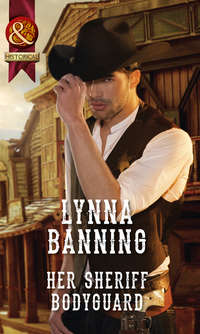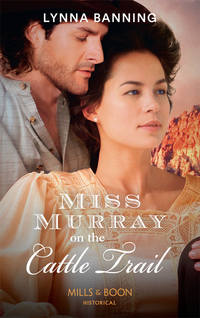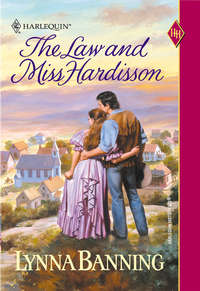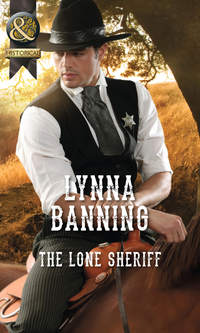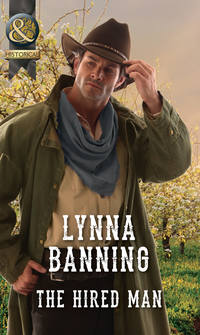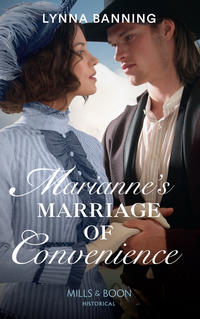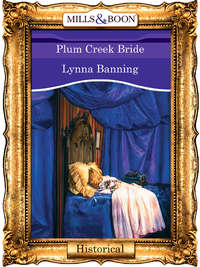
Полная версия
The Wedding Cake War
“Oh, the colonel is…well, he is just wonderful. Simply, truly…wonderful.”
“Wonderful,” Fleurette echoed dryly. She tapped her spoon against the edge of her glass and laid it on the tiny pink tea napkin provided. “Wonderful, how?”
“Oh, in every way, I assure you. I’ve known him all my life, you see. He came to live here in Maple Falls when I was four…or was I five? Let’s see, I am nineteen now, and the colonel arrived right after the war. That’s sixty-five subtracted from seventy-nine…. Yes, I was five. I remember it was on my birthday.”
“More to the point, how old is he?”
Carrie giggled. “Oh, I calculate he’s old enough to be my father and then some. But Dora Mae Landsfelter is years younger than her husband, and she said such things don’t matter in the least.”
“Carrie,” Lolly said, her voice gentle. “Could you calculate how old the colonel is exactly.”
Carrie closed her soft brown eyes for a moment. “Forty-three.”
Fleurette lifted her lips away from her lemonade. “Ah do wonder why he has not married in all this time.”
Lolly’s hand stilled on her glass. The question had occurred to her, as well. How had the town’s prize catch remained uncaught for fourteen years?
“Well,” Carrie began, lowering her voice, “some people say he lost a sweetheart in the war and never recovered. Others say he’s stubborn and set in his ways and he never before wanted a wife for fear she’d change him.”
Lolly’s ears burned. Stubborn? Set in his ways? The same had been said of her ever since she turned fourteen.
“He hardly lets anyone female into his house,” Carrie went on, “except for old Mrs. Squires. She’s kept house for him for years, but the colonel does all his own cooking, and Mrs. Squires says he even irons his own shirts. Can you imagine?”
“If he married, he would require servants,” Fleurette murmured. “Ah have had servants all my life.”
Lolly bit her tongue. Slaves, more likely. She squashed down a ripple of anger and decided to change the subject. “What is his home like?”
“It’s a big white house with gray shutters, and it has three whole floors and a music room and a library. I’ve never seen the library, but once I attended a recital in the—”
Fleurette cut her off. “Why would a bachelor purchase such a mansion?”
“Oh, he didn’t purchase it. He inherited it from his great-aunt Henrietta on his father’s side. She married a Northerner and came out west, but she died of the quinsy soon after the war…. Why, what’s the matter, Leora? You look like you’ve seen a ghost.”
Lolly unclenched the fist she hid in her lap. Mama had died of the quinsy a month after Papa had been killed at Chancellorsville. She spoke over a tightened throat. “Nothing is the matter.”
“Do Ah understand that Colonel Macready is a Southerner?” The excitement was evident in Fleurette’s voice.
“Oh, yes, he’s a real Southern gentleman. From Virginia. He has the most courtly manners, when he wants to, that is. And he’s so tall and well formed and…” Carrie blushed and gulped her lemonade.
“Why—” Fleurette paused, pinning her gaze on Carrie “—since you seem obviously smitten with the gentleman, has he never courted you?”
Carrie gaped at her. “Me! Every single female in this town, and even some not so single, are smitten with Colonel Macready. He’s never courted any of us!”
“Perhaps because he is a Southerner, and y’all are Yankees,” Fleurette murmured.
“Or perhaps,” Lolly said in a level tone, “because he wants to be the Smitten and not the Smittee. So to speak.”
Carrie gave a whoop of laughter and clapped her hand over her mouth, then continued. Lolly watched the green-eyed, golden-haired Fleurette straighten her spine and crook her little finger into a dainty arc.
“Ah’m sure that is exactly right, Miss…May-pole. A gentleman’s heart is not easily won.”
“Mayfield. It’s Mayfield.”
“Why, of course it is,” Fleurette purred.
“In this case,” Lolly continued, “the gentleman is willing to donate his heart to finance a schoolhouse. Apparently he doesn’t care one way or the other whether he’s smitten or not.”
Fleurette tipped her head to one side like a curious robin. “We’ll have to wait and see about that, now won’t we?”
Carrie’s hand drifted down from her mouth. “It won’t matter, ladies. The colonel has given his word on the matter. He will marry whichever one of us wins the competition. Oh, I do hope it will be me!”
“Why, my dear, Ah’d say you are enamored of the gentleman.”
“Actually,” Carrie said. “I don’t really know him very well. I’m just one of dozens of females in town who adore him and simply swoon when he smiles. But he treats us all exactly the same.”
A calculating look came into Fleurette’s eyes. “You don’t know the first thing about this man, do you? Except that you swoon when he smiles.”
“Why, no,” Carrie said. “If I did, I’d surely tell you both. We’re all in this together, are we not?”
“Precisely,” Fleurette said, her voice light.
Lolly didn’t like her tone, pleasant as Fleurette had tried to make it. Again, the back of her neck tingled.
The scent of the young woman’s perfume, something cloyingly sweet and heavy, like gardenias, made Lolly’s head swim. She turned away to draw an untainted breath and spied young Hank Morehouse lounging in the dining room doorway, sending hand signals in her direction. Satchel. Upstairs. Room 3.
Lolly nodded. No sooner had the boy disappeared than a blur of royal blue sateen announced the presence of Dora Mae Landsfelter.
“Ah, here you are,” she trumpeted. “I have an announcement.” Dora Mae clasped her hand over her still-heaving bosom. “This evening, at eight o’clock…” She panted.
The three candidates froze, fingers curled around their lemonade glasses.
“The Helpful Ladies will host a reception in the hotel ballroom. And at that time…” She paused dramatically. “You will meet Colonel Macready. She slanted a look at Fleurette. “Dress will be ladies’ evening attire.”
Fleurette gasped. “My trunks! Have they arrived?”
“They have. Mrs. Petrov had all three moved up to your room at her boardinghouse.”
Lolly sat stricken, unable to move. Trunk? Her trunk had been on the train; in her agitation about disembarking she’d completely forgotten about it. Now she realized all her possessions, except for what she obviously carried in her travel satchel—clean undergarments and a shawl and her toiletries and her Bible—were still on the train and headed for Portland.
How could she have been so scatterbrained? All she had to wear this evening was the black faille traveling suit, which at this moment felt heavier—and hotter—than ever before. She desperately needed something light and airy. Something summery and man-catching, with flounces and ruffles and…
What in heaven’s name could she do? Borrow something?
Don’t be a goose. Both Carrie and Fleurette had slim, girlish proportions, while she… Well, she was as rounded as a model in a Rubens painting, her hips and bosom blooming generously above and below her tightly laced-in waist. Besides, the smug expression on Fleurette’s perfect pink-and-cream face was enough to squash any such idea.
Carrie leaned toward her. “You look white as a huck towel,” she whispered.
“I am trying to think,” Lolly whispered back.
Carrie patted her hand. “You didn’t bring trunks full of gowns like Fleurette, did you?”
Lolly shook her head. She’d die before she confessed to being so addlepated at the train station. She finished off her lemonade to shore up her spirits. Between now and eight o’clock she had to come up with a fairy godmother, or else something she could turn into a—
“Of course!” she said aloud.
“You’ve thought of something?” Relief edged Carrie’s tone.
Would it be too daring?
“What is it? Oh, do tell me!”
It would be daring, Lolly decided. Outrageous, in fact. But, with her trunk rolling toward Portland, she had no choice.
She squeezed Carrie’s small hand. “I will wear…black. That’s all I can tell you at the moment.”
Lolly unpacked the contents of her satchel, stripped down to her camisole and drawers, and began to experiment. Her two-piece travel dress hung on hangers at the window, the plain gored skirt rippling in the breeze and the separate buttoned jacket turning this way and that as if undecided which direction to face. Already the creases were disappearing from the tight-woven fabric.
She sponged off her sticky body, then stretched out on the blue bed quilt to assess the situation.
The room was spartan but tidy. The mirror over the matching bureau reflected the white china ewer and basin she’d used for her sponge bath; her Bible lay next to the fluted glass lamp.
The tall cherry armoire opposite the bed confronted her accusingly, waiting to be filled. But she had nothing to put in it but her nightgown and one clean petticoat.
How, how? could she start a new life with one black dress and a Bible? The Heavenly Father had done it in six days, but He was God. She was a mere mortal, and female at that.
And more frightened than she had ever been in her life. No one could possibly know how the turmoil in her brain or the twitters in her stomach made her lightheaded and nauseous. Setting columns of type, even under a tight deadline, was easy compared to dressing up, especially when one had nothing to dress up in. Even protecting her printing press with her father’s revolver when her abolitionist editorials riled up the townspeople paled in comparison to the terror she felt at meeting Colonel Macready and the rest of the Maple Falls citizenry in nothing but her plain black dress, a bit of imagination and a lot of daring.
She donned her long black skirt, then lifted the black Spanish lace shawl from its tissue-paper nest in her satchel and approached the mirror. Tucking one edge of the delicate lace into the top of her camisole, she wound the long ends around her body, leaving her shoulders exposed. At her cleavage, she formed a soft knot and let the shawl fringe dangle.
There. It looked…exotic. Risqué.
Elegant. Sinful.
Dear Lord in heaven, what if they arrested her?
Chapter Three
Kellen Macready’s hand shook so violently he had to laugh. This evening’s ordeal would be worse than Chickamauga.
He stepped to the door in his paneled mahogany bedroom and yanked it open. “Madge!”
A faint voice floated from the floor below. “What is it, Colonel? I’m rollin’ out some biscuits.”
Kellen groaned. Mrs. Squires’s biscuits came out of the oven hard as minié balls. “I can’t tie this damned neckpiece.”
Footsteps clumped up the staircase. “Mercy me, you’re worse than a bairn.” Her rounded form appeared in the doorway, hands on her hips.
“Bairns don’t wear neckpieces,” he retorted. “Or shirts starched so stiff they crackle.” He liked teasing Mrs. Squires. She wasn’t afraid to talk back to him.
“I starch ’em the same way every week.” She fussed at his neck, her knobbed fingers still dexterous in spite of her arthritis. “Why the devil are ye wearin’ this fancied-up thingamabob tonight?”
“Because,” Kellen gritted out, “I gave my word to Dora Mae Landsfelter.”
“Oh, aye.” Mrs. Squires’s graying eyebrows drew together. “I remember. Sorry now, are ye?”
Kellen thought for a moment. “Only about the starch, Madge. I gave my word of honor about the rest. It will be all right in the end.”
The housekeeper sniffed. “You hope.”
Kellen jerked. He did hope. Then for the thousandth time in the past week he wondered how he’d gotten himself into this fix.
He’d considered marriage once, before the Great War and his twenty-first birthday. She’d wait for him, she said. But she hadn’t. She married his best friend the spring he marched off with the Army of Virginia, and the next winter she succumbed to typhoid. Women laced their fingers around one’s heart and then threw it away.
His intent was to keep his pledge to the school building fund committee, help them raise money. But he’d resolved that Dora Mae’s harebrained scheme wouldn’t involve any part of his heart. Plenty of people did not marry for love.
Mrs. Squires eyed him. “Are you absolutely sure you want to do this?”
“Reasonably sure, yes. For one thing, it will put a stop to that gaggle of matchmaking mothers pushing their daughters at me. And their sisters and their widowed aunts and their cousins and…”
Besides, he was the last male in the Macready line. He would hate to pass from this world without leaving an heir.
And in addition, you damned fool, you gave Mrs. Landsfelter your word.
Underneath he knew there was more to it than Dora Mae’s persuasive powers. Lately he’d been hungry for something more in his life. Something to fill the void yawning before him as he grew yet another year older. It was the one thing Kellen could not admit to anyone else. He was lonely. He wanted someone to talk to. Someone to laugh with.
Lolly’s heart plunked into her stomach like a bucket full of rocks. The receiving line stretched from the ballroom entrance halfway around the huge ballroom to the cloth-covered refreshment table, a distance of maybe twenty feet. To her, it seemed like the Great Wall of China.
And all those people!
She liked people, but she preferred them one at a time. In big crowds, her throat went dry as a dust dolly and even when she could think of something to say, she couldn’t push a single word past her paralyzed tongue. In Kansas, she had let her newspaper editorials and Papa’s revolver speak for her. Out here in Oregon she felt tongue-tied. A flatland country weed in a citified rose garden.
The line of faces turned toward her, waiting. In the glow of the huge gaslight chandelier overhead they looked like a row of smiling hard-boiled eggs.
“Thank heavens you’re finally heah,” a voice hissed in her ear. “They cain’t staht the reception until all three of us go through the receivin’ line together.” Fleurette stepped to the head of their little procession and signaled for Carrie to follow.
The young schoolteacher looked sweet in a high-necked mint-green dotted muslin with no trimming other than covered buttons to the hem of a softly pleated skirt. Fleurette’s frothy puff-sleeved concoction of yellow taffeta engulfed her slim figure in layers of ruffles and frills, swirled into a train at the back, punctuated with a large silk rosette.
“Are we-all ready?”
“Leora, you look just lovely,” Carrie whispered as Fleurette’s hand reached out to snag the young schoolteacher’s sleeve. “But…” Carrie paused as Fleurette pulled her into position. “Somehow you seem…shorter.”
“I changed my shoes.” Unable to trust her voice further, Lolly brought up the rear in silence, her lips twitching into a smile. What a picture they must make: The Three Musketeers turned out in full battle regalia.
She knew she must look like a gypsy, and she’d removed her shoes because they pinched her toes like an iron vise. But at the moment she couldn’t let herself think about it.
A hand reached out, clasped hers and pumped it up and down. The next thing she knew she was being introduced to the mayor, Cyrus Bowman.
Then the mayor’s imperious-looking wife, Hortense, and the banker and his wife and, next to her, his mother-in-law, all named something that sounded like Shumaker. Next came the head of the school board; the town doctor and his twin daughters; a mill owner named Hickmeyer; the newspaper editor, Orven Tillotsen; a retired railroad builder; and more wives and daughters and mothers-in-law than any one town deserved. The blur of names and faces made Lolly’s head ache.
Another outstretched hand grasped hers just as Carrie, one step ahead of her, made a little moaning sound. “There he is,” she murmured. “At the very end of the line.”
Lolly could see nothing beyond Carrie except great clouds of yellow taffeta, but over the next mumbled introduction, Fleurette’s voice rang out.
“Why, Colonel Macready, Ah have heard so much about you. So charmin’ to meet you at last. Ah, too, am a Southerner.”
Carrie turned her head toward Lolly and rolled her eyes before stepping up to the next person in line. “Mrs. Whipple, may I present Miss Leora Mayfield?”
Lolly tried to smile. “Mrs. Whipple.”
The old woman in plum sateen shot her a keen look and nodded brusquely. “My dear.”
At her side, Carrie heaved another sigh, and Lolly heard her quavery voice. “Good evening, C-Colonel.”
After Carrie, Lolly was next in line. Great balls of brimstone, she was but one step away from the moment she had agonized about ever since she left Kansas—meeting a perfect stranger who would marry her.
Kellen watched the three guests of honor unknot themselves from the circle they had formed and step up to the Meet and Greet Trail, as he termed it. Barbarous custom, receiving lines. An uncivilized way to trot out the goods for inspection before the fair.
He knew Careen Gundersen from many previous occasions over the years, mostly birthday parties her parents had hosted. Careen had turned out to be a very capable young woman. Prim, maybe. And a tad…flat, somehow. The girl had always had a sensible head on her shoulders; it was beyond his understanding why on earth she, of all people, would want to enter this matrimonial charade.
Gliding down the line ahead of Careen was a meticulously groomed lady in a voluminous flounced skirt that was wound up in the back like a beehive. Quite a lot of baggage resting on that derriere. He watched her navigate from Sol Stanton to Mrs. Whipple and on toward him, her posture so rigid that her golden-blond corkscrew curls didn’t bob but hung stiffly in place, even when she tossed her head. Sugar water and rag rollers, he guessed. Females put up with the damnedest things.
The women looked somewhat like curious birds, though of different species. Careen resembled a baby wren, her folded wings yet untried. The lady with the curls reminded him of a yellow silk peacock.
His gaze drifted beyond the peacock to the next person in the line, but he couldn’t get a clear view of her. All he could see was the gracefully flared black skirt she wore, which, now that he studied it over the bare shoulder of Miss—what was peacock’s name again?—struck him with its simplicity. Not a wren. Not a peacock, then. An elegant black swan.
“Why, Colonel Macready…” The peacock’s voice chirped on. “…am a Southerner.”
Kellen tore his gaze from the woman in black and focused on the beaming heart-shaped face before him. “I beg your pardon?”
“Ah said Ah am also a Southerner, like yourself.”
“Actually, after nearly fifteen years in Maple Falls, I now consider myself an Oregonian.”
“Oh, now, Colonel. Ah don’t believe that for one li’l minute.”
He made polite noises while she gushed on until he saw an opportunity to pass her on to the refreshment table, where Ruth Underwood and her husband were pouring champagne.
And applejack, he remembered from his earlier conversation with the hotel bartender. He licked his lips. He couldn’t get there soon enough.
Then Careen stood before him, sighing like a spring wind through the aspen grove.
“Careen, it’s nice to see you.”
“Good evening, C-Colonel. I’ve been looking forward to this for weeks and weeks.”
“As have I,” he lied. “It’s a bit like one of your birthday parties, isn’t it? Except for the champagne, of course.”
And the applejack.
“Oh, Colonel, you will dance with me later?”
“Why, of course. I’ve danced with you at every party since you were five years old. Remember how you used to stand on my shoe tops?”
Why was she looking at him like that?
“I remember,” Careen murmured.
But Kellen was no longer listening. He found himself watching the woman in black, now speaking to old Mrs. Whipple.
Her chin tipped forward, allowing a waterfall of loose, dark curls to tumble over her bare shoulders. And God in heaven, what shoulders! Some kind of rich-looking lace festooned them, allowing glimpses of creamy flesh through the open cut-work. He tried not to stare. The way her body curved in and out made his neck burn.
She held on to Mrs. Whipple’s hand for an extra-long minute, and then Careen reached out and drew her away, toward him. The woman lifted her head, and her thick, dark hair danced against those satiny shoulders.
And then she did something so completely unexpected he wondered if he was dreaming. She shut her eyes tight and stretched out her hand toward him.
“Miss Leora Mayfield,” Mrs. Whipple intoned.
“Please, please,” she whispered. “Hold on to my hand. I am having a nervous reaction.”
Kellen clasped her hand in both of his and peered into her face. The woman was attractive. Extraordinarily attractive. He studied her wide mouth, the dark lashes against her cheeks. My God, she’s beautiful.
“Reaction to what?” he managed.
“To…this. All of these people.” Her lids opened and her eyes locked with his. They were so blue and clear they made his throat ache.
“Crowds terrify me.”
“Your nervous reaction is not to me, then?”
She shook her head. “Oh, no. At least not yet.”
Relief coursed through him, followed by a gut-tightening unease. Not yet?
Kellen stood motionless, steadying her trembling hand in his. The receiving line broke up, reforming in twos and threes at the refreshment table to his right.
“I was about to have a glass of something to drink,” he said gently.
“Oh, thank heaven. Could you possibly bring me one, as well? I’m so glad this is over, I feel like celebrating.”
He laughed without thinking. His opinion exactly.
“But it is not over. It has just begun.”
“For me it’s over. The hard part, anyway. The rest is up to the Ladies Helpful Society.”
Kellen winced. At this moment he didn’t want to be reminded of the corner Dora Mae Landsfelter and her cadre of Helpful Ladies had backed him into. All he wanted to do was enjoy this moment for as long as he could.
“Come.” He turned her toward the refreshment table. “I think we’ll both need a drink before this evening is over.”
Chapter Four
At the refreshment table, Kellen watched Ruth Underwood pour fizzing champagne into two glasses while her husband glugged dark gold applejack from a ceramic jug into teacups. He reached for a glass of the champagne for Miss Mayfield. Miss Mayfield, however, lifted a brimming cup of the applejack and brought it to her lips.
He kept his eyebrows from rising by sheer force of will. “You ever taste applejack before?”
She looked at him over the rim of the cup. “Never.”
“Would you care to sit down first?”
“Most definitely. As soon as I drink some of this.” She downed a big swallow, and he watched her eyes widen and then tear up. He lifted the cup from her fingers and steered her to the green velvet settee against the wall.
She sat down. Then jumped up. Sat down once more and bent forward as if to inspect the hem of her skirt. When she raised her head, Kellen presented the glass of champagne. She reached instead for the cup of applejack in his other hand.
A single-minded swan. “It’s pretty potent,” he cautioned. “More than ninety proof the way Josh Bodwin makes it.”
“Good,” she said. She took another swallow. “You’re quite right—lots of proof.” Her voice sounded raspy. Kellen drank half the glass of champagne while she gulped another mouthful of the brandy.
“Do you do this often?” he inquired. The only woman he’d ever known who could put away liquor like this was Great-Aunt Henrietta, and she’d had years of practice.
“No, I have never taken spirits before. It tastes rather like—” she thought for a moment “—crushed oak leaves.”
He couldn’t let her swill down any more; she’d fizzle out like a spent match. He had to think of something to distract her.


